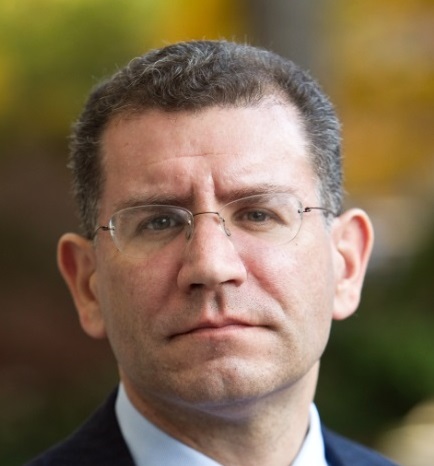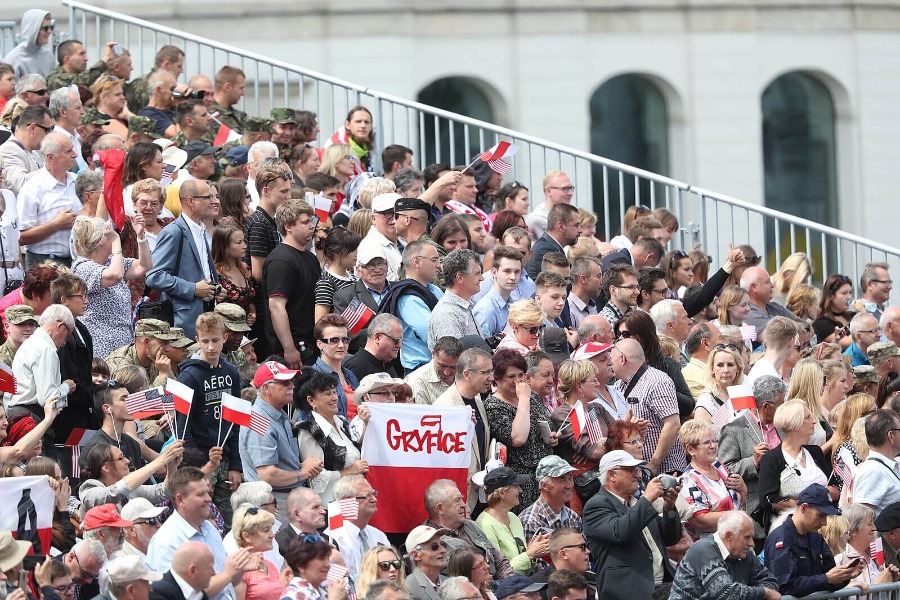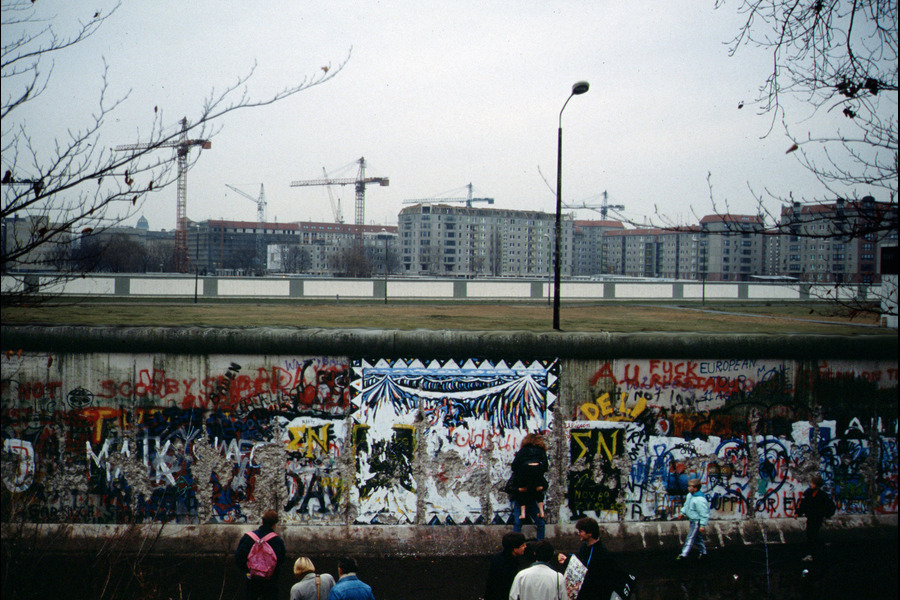Iraq in the Eye of the Storm
Editor's Note: This piece originally appeared on Markaz.
Published by The Lawfare Institute
in Cooperation With

Editor's Note: This piece originally appeared on Markaz.
Author’s Note: I spent last week in Irbil, Iraq along with Michael Knights of the Washington Institute for Near East Policy. We met with a wide range of senior Iraqi and Kurdish officials, as well as journalists, analysts, and academics. The trip included a visit to Kirkuk after the terrorist attack there on October 21, as well as time spent near the frontlines, observing Peshmerga military operations against the Islamic State (also known by its Arabic acronym, Da’esh) and discussing the campaign with U.S. and Kurdish military officers. This post describes my impression of events in Iraq, including political developments in Baghdad. A second post will describe my sense of developments in Iraqi Kurdistan.
***
Hard Fighting, but on Track
Militarily, the battle for Mosul appears to be going largely according to plan, so far. Coalition forces continue to push forward, tightening the noose around the city from multiple axes of advance. One of the big surprises was that Peshmerga and Iraqi army units have been cooperating remarkably well. Iraqi formations have conducted passages of lines through Peshmerga formations, and armor from the Iraqi Army 9th Mechanized Division has been supporting Kurdish attacks south of Irbil.
Da’esh forces are fighting back very hard and giving ground only reluctantly. In many cases, the Iraqis and Kurds have preferred to surround and besiege Da’esh-held towns rather than take the heavy casualties they would likely incur clearing them. It is worth noting that the evidence and analysis seems mixed as to whether Da’esh is withdrawing forces from Mosul to conserve them for the defense of Raqqa, or pushing reinforcements into Mosul to bleed the coalition and postpone (or even prevent) a coalition offensive against Raqqa.
Nevertheless, Da’esh has not been able to defeat or derail the offensive. Although it is impossible to know Da’esh intentions for certain, it seems most likely that the attack on Kirkuk on October 21 was a long-planned counterattack. Da’esh is famous for attempting horizontal retaliation—attacking somewhere else to compensate for a loss, like its assault on Ramadi after the coalition took Tikrit in 2015. The Kirkuk attack falls into that pattern. In addition, the attack was a complex one, involving agents that had been infiltrated into the city at least days, and probably weeks or months, beforehand coupled with a larger infiltration of fighters after the Mosul operation had started. While the attack was frightening, it was swiftly defeated and had no impact on the operation.
That said, there have been problems. For instance, on October 23, the Iraqi Army and Kurdish Peshmerga were meant to launch simultaneous attacks on Da’esh from supporting axes of advance, but the Iraqi army simply did not attack at all. It is unclear why, but they returned to the fight with brio the next day, possibly to make up to the Kurds for their prior day’s failure.
Of potentially greater significance, there are indications that the United States has too little air power in the region to meet all of its support requirements. On October 20, the United States did not provide any air support to Kurdish forces. Senior Kurdish officials were absolutely livid about this lapse. It is unclear why, but American personnel in the field complain that there simply are not enough airframes available. That may be particularly acute at present with Kurdish and Iraqi army forces advancing along at least five axes of attack. Because Kurdish and Iraqi forces have become dangerously dependent on American air strikes to advance, coalition air power appears to be pulled in too many directions to support too many operations, leaving too little for many sectors and none at all for some.
Nevertheless, there is every indication that the coalition forces will continue to advance and should be in jump-off positions for the assault on Tikrit itself in the next few weeks, with the attack on the city proper likely to commence soon thereafter.
Post-Liberation Plans Remain Mysterious
One of the more surprising, and depressing, aspects of the operation has been how little is known about any post-liberation plans for securing, governing, and rebuilding Mosul. None of the Kurdish parties, none of the other Iraqi groups slated to participate in the operation, not the Turks, nor the Shiite Hashd ash-Shaabi (Popular Mobilization Forces) are aware of any specific plans for this. They all insist that they have only been briefed in the most general terms and have not been asked to sign onto any detailed plans. The Kurds have agreed to keep their Peshmerga several kilometers back from the city and to leave the assault itself to the Iraqi security forces (ISF). The leaders of other groups who will participate in the operation have been given sectors to assault and guidance about what others will do to take the city, but nothing about what happens when the city is taken.
Of course, the U.S. government is not manned by complete idiots. American officials are well aware of the potential for problems in Mosul and therefore of the need for some kind of plan for how to handle the situation. Indeed, numerous reports indicate that while the United States may have started late, it has spent time and energy discussing this issue, including in conversations with its Iraqi and coalition partners. So I think it a mistake to assume that the Obama administration is simply ignoring this problem.
Instead, all of this strongly suggests that the United States has decided to allow the Iraqi government to take the lead on post-liberation Mosul and handle the situation however it sees fit. The United States would then simply keep all of the other Iraqi and regional actors either out of the attack or out of the business of running Mosul once Da’esh has been defeated there.
If this is the course of action that the United States has chosen to adopt, it has certain advantages. It is, obviously, the simplest solution for the United States to yet another thorny Iraq problem. It obviates the need for complex planning and complicated deal-making among the different groups intent on staking their claim to part or all of Mosul. It has the advantage of being legally sound, since the government of Iraq has sovereignty over the city. It is unquestionably what Iraqi Prime Minister Haidar al-Abadi wants, and since he and the Iraqi government are America’s primary allies, conforming to his preferences makes it unlikely that the will take actions to deliberately complicate the operation. Finally, it obviates the need for painful and time-consuming negotiations among a welter of competing groups that could have pushed off the start of the offensive for weeks or months. That would make it nearly impossible to liberate Mosul before President Obama leaves office, which may also have been an important political consideration for a president who campaigned on a platform of ending the Iraq war at all costs.
However, leaving post-Da’esh Mosul entirely in the hands of Baghdad and simply following its lead also entails considerable risks. The government of Iraq has shown only a very modest capacity to conduct such operations. At Tikrit, Ramadi, and Fallujah, the Iraqi government can claim a number of important achievements, but these were much smaller towns and there were as many problems as there were successes in these operations. The Iraqis have (hopefully) learned and will do better this time, but the scale of this operation—and the need to pursue ongoing operations elsewhere simultaneously—could swamp the capabilities of the central government.
Moreover, pursuing such an approach would also mean rolling the dice regarding various actors beyond the full control of the Iraqi government: the Hashd ash-Shaabi, Atheel al-Nujayfi’s Nineveh Guard, various Sunni tribes, the Kurdistan Workers’ Party (PKK), the Turks. In the absence of an agreed-upon plan that gives all of these actors a well-defined mission and boundaries on their activities (both geographic and operational), they may choose to just grab whatever they can. Indeed, many expect that these groups will try to carve out sectors for themselves regardless of what the Iraqi government or the Americans say, and the danger is that this will turn into a violent free-for-all as different groups try to establish facts on the ground.
The apparent decision to simply follow Abadi’s lead and leave post-liberation Mosul to the Iraqi government raises the question of whether the Obama administration is repeating the same mistake it has in the past. From 2009 to 2014, the administration backed the government of Prime Minister Maliki to a far greater extent than the facts warranted. Throughout that period, U.S. officials endlessly defended his actions in public, and did little in private other than to urge restraint. These warnings typically had the same force as reminders to “please think of the environment before printing” at the bottom of emails.
The result was disastrous. Without any American pressure to change his behavior, Maliki subverted Iraq’s democracy, alienated the Sunni community, destroyed the Iraqi military, enabled the Da’esh conquest of northern Iraq, and drove the country back into civil war. Throughout, the Obama administration insisted that it was right and ignored warnings from a vast range of Iraqis, regional allies, coalition partners, and experts on Iraq. There is a disturbing sense that history may be repeating itself. While Abadi is a far cry from Maliki, with the best of intentions and some willingness to act on them, he has made mistakes and has a limited capacity to govern. At the most basic level, getting the stabilization and reconstruction of Mosul right is likely to be an enormously complex undertaking and any Iraqi government could doubtless benefit from external advice, assistance, and guidance—especially from the United States, the former occupying power who has done this many times in the past, both correctly and incorrectly. The mistakes made with Maliki should make clear the dangers of the United States uncritically backing an Iraqi prime minister who follows his own beliefs rather than what the historical record demonstrates is best warranted, no matter how much we may like him.
Crisis Averted in Baghdad, but another Brewing
Abadi himself appears to have been shaken by the most recent effort to bring down his government, but he also appears to have survived it and seems determined to win big at Mosul to ensure his re-election.
Over the summer, former Prime Minister Maliki engineered the forced resignations of Defense Minister Khaled al-Obeidi and Finance Minister Hoshyar Zebari. He had set his sights on Foreign Minister Ibrahim Jaafari next, and begun to create problems for Speaker of the Parliament Salim al-Jabouri. All expectations were that Maliki hoped to cause the fall of the government and so bring down Abadi, his former aide. Although Maliki may still be able get Jaafari dismissed and has effectively hobbled Jabouri to the point where he dare not oppose Maliki’s political moves, the word from Baghdad is that Abadi’s job is safe. The Obama administration made clear to all who would listen that they would pull their military support if Abadi were removed as prime minister, and that forced Abadi and his allies to back down. (It also demonstrated the revived influence of the United States.)
At this point, most Baghdad political elites believe that Maliki will continue to pursue these various leaders, but largely out of a desire for revenge: Many of them were key players in his removal from the premiership in 2014. Several Iraqi leaders told us that Maliki is telling people that he regrets having agreed to step down as prime minister in 2014. In contrast, he is also claiming that he does not want to be prime minister again, although he wants to be able to choose the next one. This may be true, but I would note that in 2014, Maliki endlessly told people (including myself) that he did not want to be prime minister again after the 2014 elections, only to fight ferociously to be re-elected.
The current consensus appears to be that Abadi will remain prime minister until the 2018 elections. There is considerable discussion of delaying the 2017 provincial elections until April 2018 to hold them simultaneous with the national/parliamentary elections. This may be to save money, or to prevent Abadi from suffering the same fate as Maliki, who won the 2009 provincial elections only to then lose the 2010 national elections.
Combining the two elections also means that it will be harder to predict ahead of time how various candidates will do in the national elections. In particular, there is tremendous uncertainty about political developments in southern Iraq over the past two years while Iraq’s security forces and the attention of its political leadership have shifted from south to north to deal with Da’esh. It is entirely possible that various parties tied to the worst of the Shiite Hashd ash-Shaabi will win big in southern Iraq.
Consequently, while it is still a very long way to the 2018 elections, especially in Iraqi political terms, the three front runners in the election at present are Prime Minister Abadi, former Prime Minister Maliki, and Hashd ash-Shaabi chief Hadi al-Ameri. What’s more, although Abadi is still the favorite at this time, al-Ameri appears to have a considerably better chance of winning that previously believed likely. Because his militias have gained power and economic influence in southern and eastern Iraq in the absence of the ISF, he could win very big there. Although al-Ameri has close ties to Iran and has presided over many of the Hashd ash-Shaabi’s worst activities, he is pragmatic and has shown a willingness to work with the United States, such that Washington may not try to block him if he won the election.
Meanwhile, although Abadi has survived Maliki’s bid to unseat him, he remains hamstrung in Baghdad. He has little ability to push legislation through the Maliki-controlled parliament, his inner circle is too small to effectively run the sclerotic Iraqi bureaucracy, and most of his former political allies have deserted him. In short, he needs help.
He got two boosts earlier this month. The first came in in the revival of the pan-Shiite Iraqi National Alliance and their decision to name Ammar al-Hakim of the Islamic Supreme Council of Iraq as its head. Ammar was infuriated by Abadi’s failure to consult with him before making several precipitous moves that would have affected ISCI’s standing and patronage—particularly Abadi’s attempt to dismiss his cabinet and name a new technocracy instead. However, Ammar remains a moderate, wary of both Maliki and the more extreme Hashd ash-Shaabi leaders, particularly Muqtada al-Sadr and Hadi al-Ameri, who abandoned ISCI to turn its Badr militia into an independent party of his own. This makes Ammar a natural ally of Abadi’s. Second, Mas’ud Barzani and the Kurdistan Democratic Party decided to back Abadi in Baghdad in return for Abadi starting negotiations over eventual Kurdish independence. I will discuss the latter development at greater length in my next blog post.
Strangely Calm and Optimistic in the Midst of Battle
Despite the fact that the climactic battle with Da’esh for control of Mosul has begun and is far from completion, and despite the fact that few actually know American and Iraqi intentions for stabilizing and rebuilding the city after its liberation, Iraq seems strangely calm and optimistic. Observers from the capital report the same. Abadi has survived Maliki’s (and Muqtada al-Sadr’s) various efforts to unseat him. There is confidence that the war against Da’esh will be won and the fighting itself—and the expectation of victory—appears to be distracting many Iraqis from their political and economic problems. But all of it smacks of a false dawn. A great many fear that the liberation of Mosul will devolve into nightmarish infighting among the victors, like the Afghans after the fall of Kabul in 1992.
Moreover, the hope that Abadi will be able to translate victory at Mosul into progress on governance and reform seems overly hopeful, even though we should all hope for it as best we can. Abadi’s political rivals seem determined to contest him for the glory (Hadi al-Ameri) or simply deny him any greater influence in Baghdad (Maliki). Moreover, if the Iraqi government proves unable to handle the situation in post-liberation Mosul and there is large-scale violence, let alone ethnic cleansing, far from benefitting from victory at Mosul, Abadi will be tarnished by post-liberation failures. All of this sets up a very uneasy 2017 for Iraq, a situation that can only be exacerbated by the uncertainty around a new American administration whose Iraq policy can barely be discerned, whichever candidate you believe may prevail next Tuesday.





